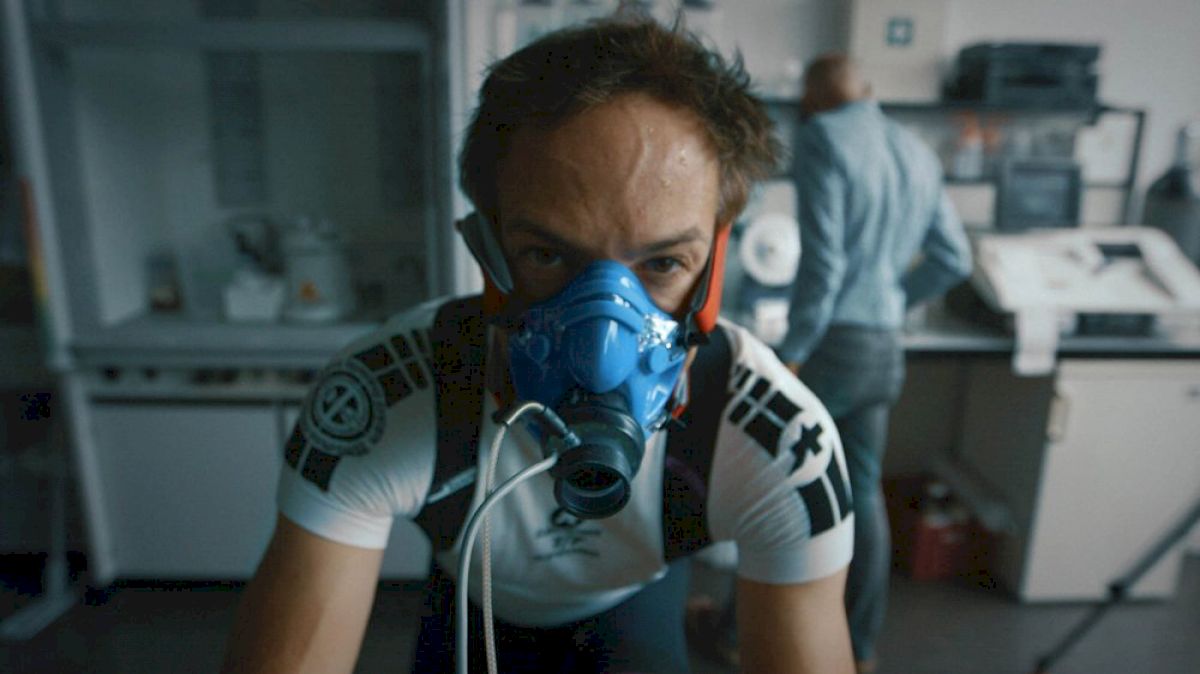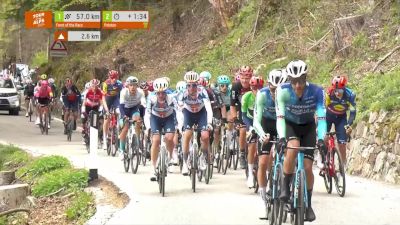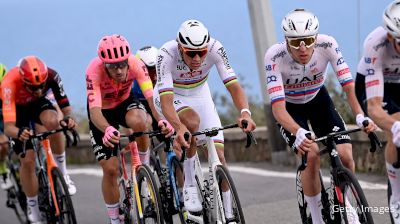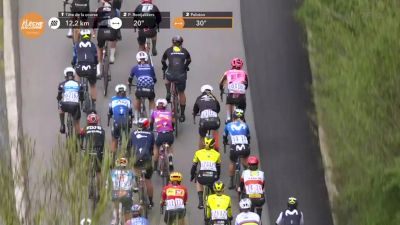We Watched Icarus, You Should Too: Here's Why
We Watched Icarus, You Should Too: Here's Why
In the new Netflix documentary Icarus, filmmaker Bryan Fogel depicts his own journey in self-administering a doping program.

In the new Netflix documentary Icarus, filmmaker Bryan Fogel depicts his own journey in self-administering a doping program. Fogel’s intent is to improve his standings at a top international race — and prove the ineptness of anti-doping measures.
In his search for an expert to oversee the doping program and help him avoid detection, Fogel initially recruits anti-doping scientist Don Catlin.
But when Catlin gets cold feet, Fogel is referred to Grigory Rodchenkov, the director of an anti-doping laboratory in Moscow accredited by the World Anti-Doping Agency.
Rodchenkov agrees to help Fogel. At first, it’s unclear exactly why. Why would the head of an anti-doping laboratory help an amateur athlete dope and avoid detection, on film?
However, after the two men start working together, Fogel learns that the Moscow anti-doping lab Rodchenkov directs is under investigation by WADA for helping Russian athletes beat drug tests.
As the documentary unfolds, Fogel captures Rodchenkov navigating an international doping crisis borne of his own disclosures.
Here's why you need to watch this film.
1. A Star Is Born
Icarus weaves two stories into one: the amateur dope-fueled comeuppance tale eventually cedes the stage entirely to the international conspiracy. The lynchpin of the narrative is Grigory Rodchenkov. When the Russian isn’t cutting up with the closest canine in the room (or through a video chat screen), he’s assuredly pushing the plot against corrupt sports institutions and their leaders, in spite of the deadly risks involved.
Rodchenkov comes off as both a genuine friend and confidant to the director Fogel, and an unrepentant lifelong practitioner of using drugs in sport. His own drug use as an amateur track athlete long blunts his moral indignation towards concealing the drug use of his countrymen — but only for so long.
Meet the mastermind behind the most elaborate doping ploy in sports history. #Icarus is now streaming on @netflix. pic.twitter.com/vOBtMjrTyD
— Icarus (@IcarusNetflix) August 18, 2017
2. Doping Works?
Any endurance athlete who’s dedicated their mind, body, and time to their craft has developed, at minimum, an intellectual curiosity into the dark arts of doping. What we see in the first half of the film is the cringeworthy amount of product that must be injected into the body.
Over time, sticking your rear with testosterone is probably not much more painful or disruptive to your day than flossing. But to see the amount of planning, calculation, and discomfort that goes into "race preparation," makes one wonder: would you be more disciplined about taking PEDs correctly than you are about keeping your chain lubed or getting a full night’s rest?
Clean athletes should take solace in the fact that though the director’s power numbers improve in the lab, his race results do not. Is that you there, karma?
3. A Cast Of Kings
While Rodchenkov is the film’s most catalyzing personality, he’s also an animated foil to the big names who show up in sober interview spots. Don Catlin, Dick Pound, Craig Reedie, and other luminaries all appear in the film. Their comments underscore the fact that this is not merely Grigory’s wild ride we’re watching, but a personally guided tour behind the curtain at these revered organizations.
As an added bonus, Dave Zabriskie returns to your screens, laconic as ever.
4. The Revelation And The Bigger Picture
So why did Rodchenkov help Fogel to dope, and subsequently use the director to expose Russian anti-doping corruption? It seems when the repercussions of Russia’s cheating expanded beyond the sports world into international conflict, he’d had enough.
Grigory Rodchenkov always knew that Russia had it out for him.
— Icarus (@IcarusNetflix) September 26, 2017
Now, he speaks out in the @nytimes. https://t.co/WHmsZLAhdr pic.twitter.com/RHgeDDETvS
Rodchenkov hints that the swell of Russian nationalism spurred by the Sochi Olympics success may have led to the conflict with Ukraine. Russia’s antagonism towards the Ukraine led to NATO sanctions of members of Putin’s inner circle — some of the same figures whose enrichments were exposed in the Panama Papers. Further, the Panama Papers have been widely noted as a likely precipitant to Russia’s U.S. election meddling, and so forth.
Sporting fraud necessarily creates “losers.” However, in the case of Russia’s state-sponsored doping, the effects of the fraud are long-lasting and, in some cases, fatal.
5. The More Things Change, The More They Stay The Same
In the film’s third act, set in 2015 and 2016, Rodchenkov is on the lam from the Russians in the U.S., and the consequences of the state-sponsored doping program he oversaw play out. Russian athletes who were at first banned from participating in the Rio Olympics are later handed a gift from the International Olympic Committee. The ban is overturned and Russian athletes are given admission to the Rio games by the IOC.
All this makes one wonder: will we be watching a similar insider takedown of the IOC in the coming years? It’s a highly unlikely scenario. The IOC and its political and financial clout can thumb their nose at WADA decisions without loss of sponsorship, viewership, or risk of boycott. In other words: the show goes on.
By Phil Wikoff
Related Content
 How to Watch: 2024 UCI MTB Eliminator World Cup in Barcelona | Cycling
How to Watch: 2024 UCI MTB Eliminator World Cup in Barcelona | CyclingApr 19, 2024
 Replay: Tour of the Alps | Apr 19 @ 12 PM
Replay: Tour of the Alps | Apr 19 @ 12 PMApr 19, 2024
 How to Watch: 2024 UCI BMX Freestyle Urban Session Brussels | Cycling
How to Watch: 2024 UCI BMX Freestyle Urban Session Brussels | CyclingApr 18, 2024
 Replay: 2024 Tour of the Alps - Stage 4
Replay: 2024 Tour of the Alps - Stage 4Apr 18, 2024
 Liège-Bastogne-Liège 2024 Preview: Tadej Pogacar Showtime
Liège-Bastogne-Liège 2024 Preview: Tadej Pogacar ShowtimeApr 18, 2024
 Liège-Bastogne-Liège 2024: Tadej Pogacar Battles Mathieu Van Der Poel & Tom Pidcock
Liège-Bastogne-Liège 2024: Tadej Pogacar Battles Mathieu Van Der Poel & Tom PidcockApr 18, 2024
 What Caused Scary Tour Of The Alps Chris Harper Crash?
What Caused Scary Tour Of The Alps Chris Harper Crash?Apr 18, 2024
 How to Watch: 2024 Tour of Limburg | Cycling
How to Watch: 2024 Tour of Limburg | CyclingApr 17, 2024
 Watch In Canada: 2024 Fleche Wallonne Femmes
Watch In Canada: 2024 Fleche Wallonne FemmesApr 17, 2024